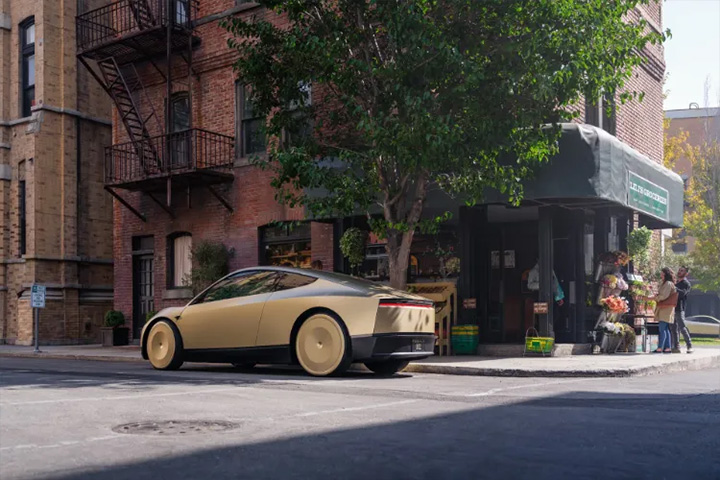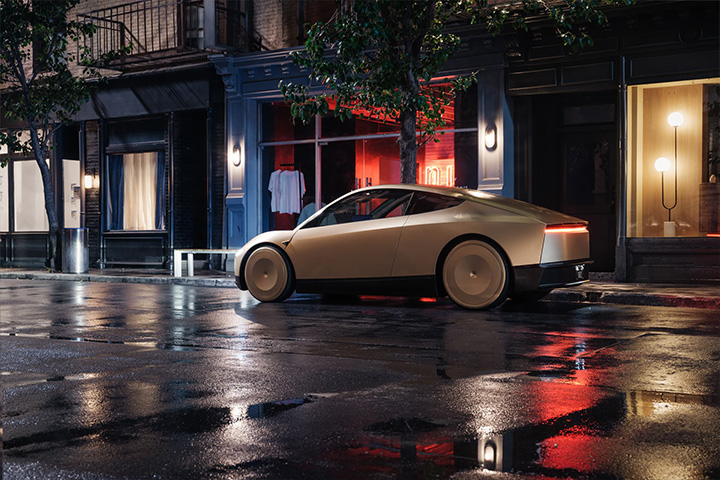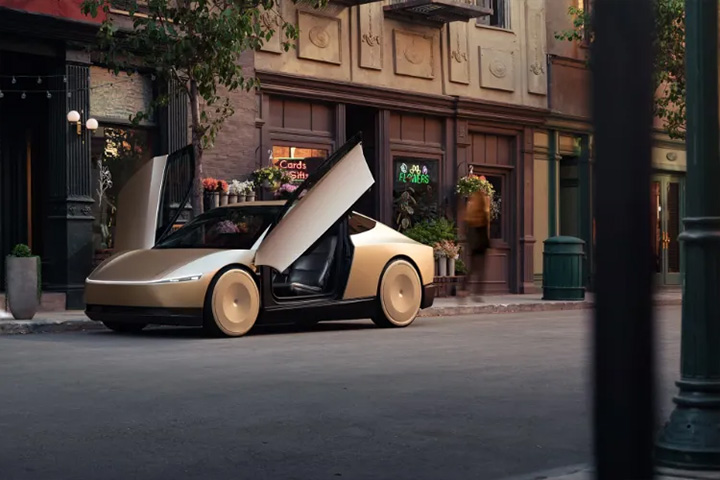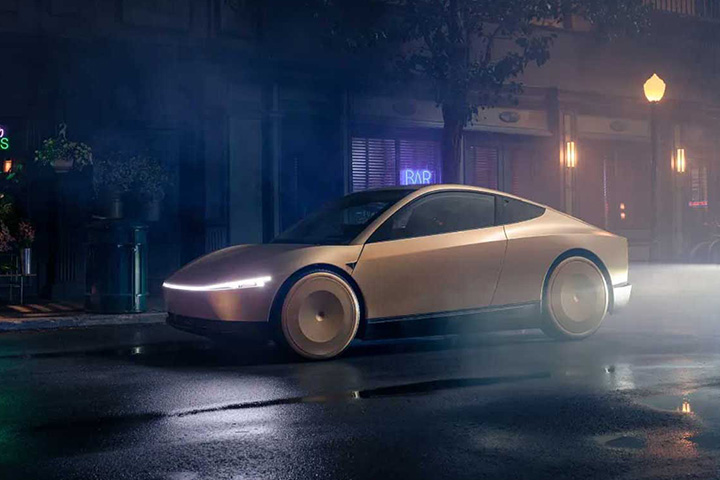Elon Musk, Tesla’s renowned CEO, unveiled the new electric vehicle, Cybercab, at an exciting event last night held at Warner Bros. Studios in Burbank, California, with a special focus on autonomous driving. Tesla’s Cybercab is a self-driving car without a steering wheel or pedals, featuring a futuristic design with butterfly doors and a compact two-person cabin. Musk announced that the vehicle uses a wireless inductive charging system, eliminating the need for physical connection.

During the event, the Tesla CEO surprised the audience by showcasing 20 Cybercab units. He claimed that self-driving cars are 10 to 20 times safer than human-driven vehicles and that their operational cost per mile (1.61 kilometers) would be just $0.20, compared to the $1 cost of city buses. He also stated that the price of this robotic taxi would be less than $30,000.
Tesla Cybercab
Musk emphasized the importance of this innovation, saying, “This is a big deal. It will save many lives and prevent physical injuries.” He also announced Tesla’s plan to launch fully autonomous driving (FSD) without supervision in Texas and California next year, using Model 3 and Model Y vehicles. Furthermore, he added that mass production of Cybercab will begin before 2027.
Tesla on the Path to Transformation Tesla Cybercab

Musk is working to shift Tesla’s focus from producing and selling electric cars toward robotics and artificial intelligence. Tesla’s market value is almost equal to the combined value of all global automakers, and a significant portion of the company’s stock price is based on Musk’s long-standing promise to solve the challenge of autonomous driving and deliver a revolutionary car that can independently drive anywhere.
Despite Musk’s history of overcoming challenges, experts in the autonomous vehicle field question Tesla’s approach to this technology, particularly the company’s focus on advanced Level 2 driver assistance systems like Autopilot and FSD (under supervision). These systems are not fully autonomous and require driver alertness, and despite their impressive capabilities, they sometimes make serious errors. Earlier this year, a 28-year-old motorcyclist was killed by a Tesla driver reportedly using FSD. Following increased government scrutiny over Tesla’s self-driving claims, the company has been forced to recall both of its driver-assistance systems.
Tesla Cybercab

At the event, Musk highlighted time-saving as the main benefit of self-driving cars, saying, “Think about the accumulated time people spend in cars, time they can get back to read, watch movies, or do other tasks.” However, Tesla lags behind companies like Waymo and Cruise, which have conducted millions of miles of road tests with their driverless cars. Robotic taxis have faced challenges like car blockages, traffic, and even several injury incidents.
Federal safety regulators are investigating several major companies to determine whether the technology used in these vehicles is safe. Families of Tesla drivers killed in Autopilot-related crashes have sued the company for wrongful death.
As mentioned, Elon Musk has promised to start production of the Cybercab in 2026, but it could be delayed until 2027. Given Tesla’s less-than-perfect track record for hitting production deadlines, it remains to be seen whether these promises for the Cybercab will come true or not.
Source: The Verge
